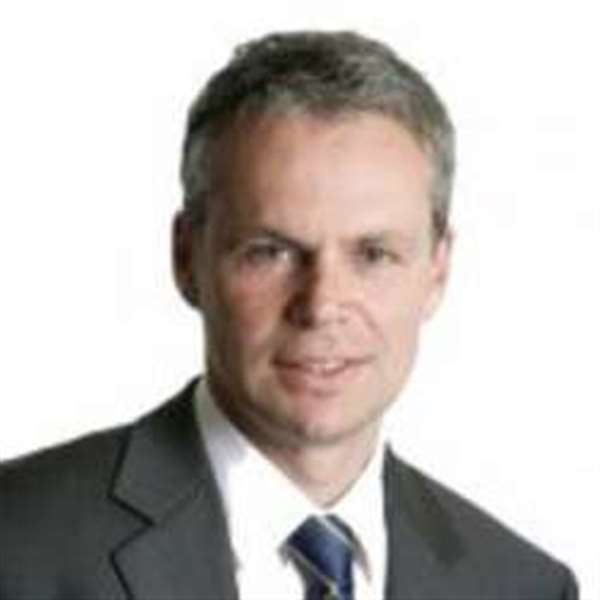Is rental changing its attitude toward the energy transition?
19 June 2024
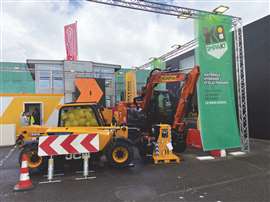 Kiloutou started promoting its electric, hybrid and by-energy products under the iMPAKT brand in France in 2021.
Kiloutou started promoting its electric, hybrid and by-energy products under the iMPAKT brand in France in 2021.
“We are part of the problem, but we need to be part of the solution. To drive towards this solution and reduce the carbon footprint, we need to be aligned on the right technology and we need to invest.”
You won’t find many people in the equipment rental industry that disagree with the above statement, made by Olivier Colleau, executive chairman of Kiloutou when asked by IRN if collaboration is the key in driving up use of alternative powered equipment.
For many, driving the energy transition goes beyond simply investing in alternative-powered equipment, with changing the attitudes of customers just as important as diversifying fleet.
And, while the sum of electric, solar, hydrogen and hybrid units in circulation may still be relatively low, there are a growing number of companies developing initiatives to encourage customers to move away from conventional models.
In the case of Kiloutou, the company has heavily invested in its electric fleet, Colleau says, and started promoting its electric, hybrid and by-energy products under the iMPAKT brand in France in 2021.
More recently, it partnered with Lyon-based specialist insurer L’Auxiliaire to offer its range of carbon-free equipment to its customers at a discounted price.
Kiloutou said the move comes as it aims to “encourage the sector’s transition to a sustainable model” and “bridge the gap in terms of awareness, information and access to low-carbon equipment between large companies and SMEs.”
Part of that drive will see it continue to invest in electric, Colleau says; “For this year, roughly 1/3 of the motorized fleet we are going to buy will be low carbon, it’s quite a big amount and this will include electric equipment, while we are starting to buy some hydrogen units for generators.”
Collective responsibility
Colleau says that for there to be a real drive for alternative power, there needs to be a collective effort in embracing a new way of powering machines; “Manufacturers need to manufacture low carbon equipment,
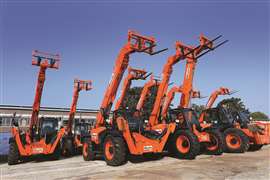 Boels Rental recently announced its collaboration with its Scandinavian subsidiary Cramo on the launch of a digital marketplace for the sales of used machines.
Boels Rental recently announced its collaboration with its Scandinavian subsidiary Cramo on the launch of a digital marketplace for the sales of used machines.
but they need to be sure that the rental companies buy them and the construction company will buy or use them.”
In the case of Netherlands-based Boels Rental, the company recently announced that it has collaborated with its Scandinavian subsidiary Cramo on the launch of a digital marketplace for the sales of used machines.
Through the online channel, the company will sell thousands of units, including electric, comprising of various heavier construction machinery and construction equipment.
Bart van Son, head of trade, Boels Rental, said, “We are very excited about the launch of the digital marketplace: an innovative platform where our customers will be able to source high-quality used equipment.
“The marketplace will be an extension of our commitment to sustainability. It will promote the circular economy by extending the life of used rental machines.
“The marketplace will enable us to take an important step towards a sustainable rental sector.”
The company said more units will be added in the future as the partnership with Cramo expands.
Changing preconceptions
Nordic-based Renta Group is another company that has pledged to diversify fleet by embracing new technology.
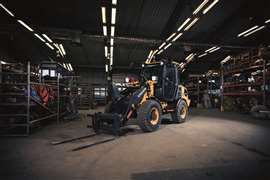 Renta Group offers a range of battery-driven electric construction equipment from handheld tools to earthmoving equipment, including power banks, forklifts, telehandlers and wheel loaders.
Renta Group offers a range of battery-driven electric construction equipment from handheld tools to earthmoving equipment, including power banks, forklifts, telehandlers and wheel loaders.
The company offers a range of battery driven electric construction equipment from handheld tools to earthmoving equipment, including power banks, forklifts, telehandlers and wheel loaders.
Although it does offer diesel powered equipment, it is working to encourage its customers to consider alternatives, as fleet director Fredrik Svanestrand tells IRN.
“The reality is, we are still in the early days of alternative power replacing diesel and other combustion engine powered machinery in the large machine categories.”
“We are already proposing electric alternatives to customers today and trying to open the eyes of those who may not have previously considered it.”
He tells IRN that the company is looking to set up new product areas specifically for its green equipment, which will help to clarify its offering and value proposition and also make it easier for customers to find the products.
“So far, most of the business development is being done locally, but we are looking to harmonize the categories and processes between countries so that when a customer in Finland asks for, say, a power bank, we can find it from Norway if it is available there.
He predicts that as the industry begins to mature, the demand for zero-emission machines will likely increase.
Practical steps to reduce emissions
In April, the European Rental Association (ERA) launched a handbook to help guide rental companies toward greater sustainability practices.
Describing sustainability as a “critical topic” for the industry, the association said the 49-page Handbook on Sustainability in Rental addresses the challenges and opportunities that the equipment rental sector faces.
It provides companies with practical insights and actionable steps across three core areas: net zero, circular economy and zero waste, and social and workforce sustainability.
A key focus of the net zero section of the handbook is the energy transition and rentals move toward a more sustainable future.
It provides guidance on sustainable asset purchasing, use of biofuels, hydrogen, battery-power, HVO, science based targets and setting targets.
At the same time, the handbook highlights and provides guidance across key social factors impacting rental companies across Europe, including labour shortages, attracting and retaining talent, and diversity & inclusion in rental.
Another key topic is the use of telematics and the wider digitization of the industry feature, with the report highlighting how companies can use telematics to compile information about the usage, performance or health of equipment.
Elsewhere, the handbook provides guidance on the current regulatory landscape in Europe, including upcoming legislation such as the Corporate Sustainability Reporting Directive (CSRD) and the Corporate Sustainability Due Diligence Directive (CSDDD).
10 rental firms, OEMs and contractors join forces for new sustainability groupBouygues Construction, Colas, Eiffage, Haulotte, JCB, Kiloutou, Manitou Group, NGI, Salti and Volvo have joined forces to create a new group dedicated to making the sector more sustainable. The group’s name is abbreviated to CAMD (from the French name Communauté des Acteurs du Matériel Durable). It aims to work with the construction industry’s trade federations to accelerate the environmental transformation of the construction equipment industry. 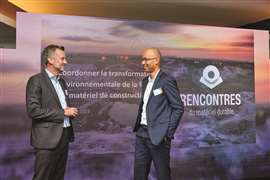 CAMD’s two vice chairmen, Michel Denis (left) and Patrick N’Kodia, are president and CEO of Manitou Group and director of transformation at Bouygues Construction respectively. CAMD’s two vice chairmen, Michel Denis (left) and Patrick N’Kodia, are president and CEO of Manitou Group and director of transformation at Bouygues Construction respectively.
Its five key objectives are:
It has been set up as a not-for-profit organization. Olivier Colleau, chief executive of Kiloutou will serve as chairman. CAMD’s two vice chairmen, Michel Denis and Patrick N’Kodia, are president and CEO of Manitou Group and director of transformation at Bouygues Construction respectively. An operational committee made up of representatives from the 10 companies will monitor and implement the objectives. They will identify and lead cross-functional projects focusing on technological challenges in the industry such as energy, powertrains, carbon footprints and measurements. They will also monitor regulatory developments including the European Corporate Sustainability Reporting Directive (CSRD), European taxonomy, and the Science Based Targets Initiative (SBTi). |
STAY CONNECTED



Receive the information you need when you need it through our world-leading magazines, newsletters and daily briefings.
CONNECT WITH THE TEAM
